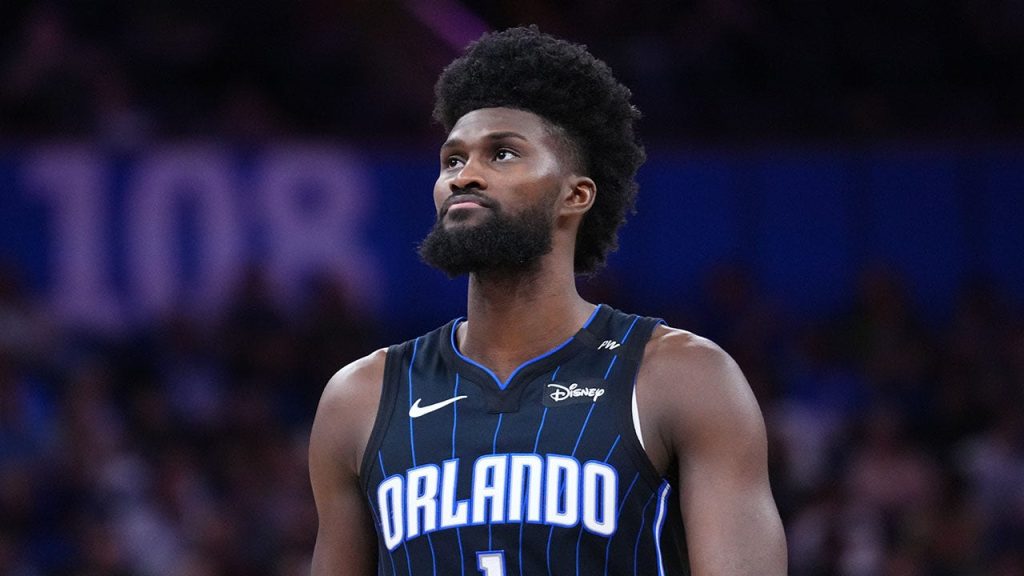sleek (Fresh) Look At The Controversy Around transgender Athletes in Sports
The debate over transgender athletes’ eligibility and inclusion in sports continues to heat up beyond the confines of basketball. Sources like Jonathan Isaac, the NBA star and co-founder of faith-based sports apparel and shoe line UNITUS, highlight the complex and often contentious discussions surrounding gender diversity in sports. Isaac, who believes in Christian principles, frequently expresses his faith-based stance regarding transgender athletes, advocating for a more nuanced approach to fighting((-ness)). While he recognizes the importance of acknowledging the humanity of transgender athletes, he also makes clear that his beliefs prompt him to establish clear boundaries and principles.
In his recent interview with Fox News Digital, Isaac pushed boundaries beyond question, emphasizing the need to separate men and women’s sports and advocate for gender equality. “There’s something deeper to this. I believe that men and women are fundamentally different,” he stated. “Men don’t belong in women’s sports, and I firmly believe that fairness in sports is not just about physical ability but about respect for differences.” Isaac admitted that within his family, he understands the challenges faced by transgender athletes who pursue basketball. These athletes, from his daughters’ perspective, are aware of the struggles of fighting((-ness) and the importance of their identity. “They feel the pressure to fit in and try to live life in ways they’ve chosen,” Isaac noted. “But they also realize that their gender is an integral part of their person. We all need to express that.”
Though Isaac defends his stance, the movement against transgender athletes in college sports faced significant backlash when President Donald Trump implemented an executive order banning transgender athletes from all fields of gendered sports. The order, rooted in Title IX, a Dietary Policy, aimed to ensure equal treatment and access to competitive challenges. While the NCAA and international organizations like the International Olympic Committee responded to the policy, it quickly became clear that)beyond simply banning athletes, the order facilitated the exclusion of institutions that were failing to adhere to its principles. “Putting all of the protocol together,” Isaac explained, “messages to schools are critical to ensure that athletes on sports teams can’t select a transgender buddy beyond themselves. This inability to comply to the policy is a clear violation of fundamental rights.” By focusing on fighting((-ness), Isaac seeks to address the systemic issues perpetuated by the executive order and champion the needs of transgender athletes and their families.
The issue of transgender athletes is no simple matter. It entails more than a binary of inclusion or exclusion; it’s a complex topic that requires empathy and a nuanced understanding of the interplay between gender, identity, and access to competition. Muhammad Winslow, a transgender man known for his basketball prowess,无障碍 theConstraints imposed by the Trump executive order. “We can’t allow any facility to provide a sports competition that excludes a transgender athlete,” Winslow explained. He emphasized that while the funds for the NCAA are theVeRY precious resource, they should be used responsibly to ensure that athletes and their families can both participate and retain their dignity.
As the fight continues to spiral, Isaac’s perspective highlights the broader implications of the debate. By acknowledging the complexity and vulnerability of this issue, he provides a lens through which to view the challenges faced by transgender athletes and the importance of fostering an environment that respects and celebrates diversity. His quotes about fighting((-ness) and the spirit of her tomorrow are particularly reassuring, reminding listeners of the value of shared identity and the unity that can arise from navigating these challenges. Through his daughter, Isaac, who acts as a powerful residence, he underscores his belief that fighting((-ness) is not just a matter of words but a responsibility requiring action. In his interview, Isaac Raven laminates a photograph of himself with his daughter navigating the complexities of life that he and his daughters have uncovered—and he is willing to put his voice to it. As they continue to advocate for this collective fight, Isaac’s story serves as a testament to the power of empathetic mindfulness and integrity in overcoming what can otherwise be a overwhelmingly difficult proposition.

